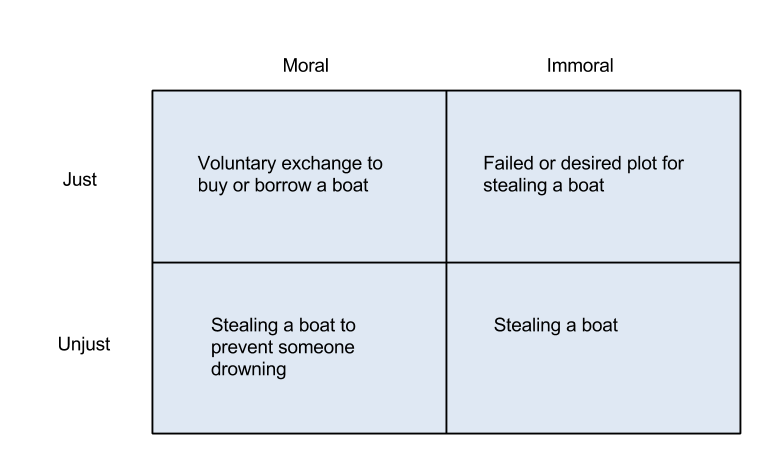- Tuition is paid for one reason: to buy a signal.
- That signal is not worth the investment compared to what you can create elsewhere.
These two great secrets are known to almost nobody. A few people know secret number one, but falsely conclude that the signal is still the best option.
A small but growing number of people partially understand what’s behind secret number two, but because they do not grasp that the product universities sell is a signal, they compare only alternative social and learning experiences to universities, not alternative ways of creating a signal.
The combined understanding of both of these secrets will completely revolutionize the way people think about and engage in education, career preparation, work, and life.
The Signal Secret
- Tuition is paid for one reason: to buy a signal.
A small number of economists and thinkers have identified that higher education is valued because of its signalling power. That is, the college experience does not form people into more valuable or learned individuals capable of doing good work, but it sorts people into groups and attaches degrees to those who were already capable.
Signals are not bad things. They are very valuable. Employers need a way to narrow the pool of applicants and weed out the least likely to succeed. There is a correlation between completing college and being a better worker on average. But there is no causation.
Harvard doesn’t make you more likely to succeed. The type of person who gets accepted into Harvard is already more likely to succeed.
Almost everyone objects to calling the product universities sell a signal. They claim it’s a big bundle of goods. It’s a social experience. It’s a network. It’s knowledge.
It is indeed a bundle of these things and many more, but these are all fringe benefits. None of them are the core product being purchased. When you pay to get your oil changed and the waiting room has coffee and magazines it’s a nice perk, but it’s clearly not the service you are purchasing. If the auto garage didn’t have these comforts you might still go, but if they only sold coffee and magazines without oil changes, you wouldn’t.
College is the same. Whatever other activities and benefits students may derive from their experience, none of them are the reason they are paying to be there. They are paying for the signal, period.
It’s easy to prove this point. List every other element of the higher education bundle. Sports, parties, talks with professors, lectures, books, living with other young people, etc. Now ask which of these would be possible if you never paid tuition? All of them. Move to a college town, sit in on classes, join clubs, go to events, read books, and live the college life to your heart’s content.
When you take away the credential at the end, it becomes clear how easy it is to get all the other aspects of college for free or very low cost, and often better.
This is also evidenced by the fact that everyone is happy when class is cancelled. What other good do people pay for upfront and then cheer when it’s not delivered? It’s because the classroom lectures and tests are not the good being purchased. They are an additional cost that must be borne in order to get the real product, which is the piece of official paper. The signal.
Young people may or may not enjoy some or all elements of the college experience. But the reason they go and pay is because, in their minds, they have to. They have to to get the signal, because without the signal you can’t get a decent job or be seen as a decent human being, so the prevailing narrative goes.
The signal is the product. Until that is understood, no amount of tweaking or reforming or innovating any of the other parts of the higher education bundle will matter.
And it turns out, you don’t need the signal college sells after all.
The Alternatives Secret
- That signal is not worth the investment compared to what you can create elsewhere.
Everyone is thrilled to show you charts and graphs and statistics about the correlation between degrees and earnings. None of that matters.
It doesn’t matter because aggregates are not individuals and because data can never show causation.
What happens to the average of some aggregate does not determine what course of action is most beneficial for an individual. The average Ferrari owner earns a lot more than the average Honda owner. No one assumes this means buying a Ferrari is a great way to improve your earning potential.
To the individual, the question is not whether college is a good investment for all young people on average. The question is whether you can build a better signal with less than four plus years and five plus figures. Turns out, that’s a pretty low bar.
The degree signals that you are probably a little above average for someone your age. Maybe not even that as degrees proliferate. This means if you are average or below average in ability, creativity, or work ethic, the degree signal may help you get a better job than you could without it. (Though it won’t help you keep it.)
If you are above average in ability, creativity, or work ethic the degree signal sells you short. It makes you blend in with all the lower quality people coming out of the same institution. (Not only that, the college experience itself tends to foster habits that make you less able, creative, and hardworking.)
Young people today have at their fingertips tools to create signals far more powerful than generic institutional credentials. Consider the impact of a tailored website that demonstrates the value you have created? Better yet, a website or product that demonstrates to a company the value you will create for them?
Consider the value of working alongside a successful entrepreneur or industry leader for free or low pay for a year or two and parlaying that into a full-time gig? Companies hate the searching and hiring process. They’d always rather promote someone within who has a proven track record of value creation. Compare the cost of low wages for a year or two to the cost of no wages and huge debt for four.
Businesses need value-creating employees. They use degrees as an early proxy to eliminate some chunk of applicants (though even this practice is declining for big and small companies alike), but they only use them in absence of a better, clearer, more powerful signal. When one exists, it trumps the academic credential. When you realize all they want is proof of ability to create value, the world begins to open up. How many ways are there to prove that you can?
It’s not only about getting hired. Professors are quick to tell you that wages are not the only thing that matters when it comes to happiness and success in life. They are correct. Yet chasing the degree as the only signal often leaves people with debt that requires a relatively high wage to service, thus cutting off options and opportunities to explore and experiment.
Not least of these explorations is the wonderful and growing world of entrepreneurship. It’s easier and cheaper than ever to create your own product or launch your own venture. It’s also more and more valuable. Machines and software can do rote tasks. Humans’ greatest value add is creative problem solving and innovation.
The ability to freelance for a living, launch a micro business, or create a major enterprise is expanding every day. There is no benefit to the degree signal in the world of entrepreneurship. There are no HR departments wading through resumes looking for checklists. Here, in fact, the college experience can be more of a detriment than a benefit. It tends to restrict the imagination to known methods, restrict your network to same-aged people, restrict your financial flexibility and risk-taking, and cut into many of the easiest years for trying something bold when the cost of failure is lowest.
A 20-year-old who launched a KickStarter campaign, built an app, created a website, apprenticed for a small business owner, read 50 books, or even just has an amazing online presence signals more value creation potential than a 22-year-old with a BA and a 3.7 GPA. Yes, you can supplement the college experience with these other things, but classes and obligations (not only time but financial and parental) get in the way of fully unleashing your independent signal-creating potential.
The Real Revolution
The real revolution in higher education will not come from better delivery mechanisms for lectures, or new platforms to sell the same signal. It won’t be disrupted by online versions of the brick and mortar establishment.
The real revolution will look as varied as the people participating in it. It will begin when people understand the two secrets of higher education. When it is realized that college is selling a signal and that signalling your ability to create value can be done far better in myriad other ways, the world will bloom with alternative methods of getting young people from where they are to where they want to be.
Instead of 16, 17, and 18-year-olds stressing about how to get into colleges, they should focus their energy on how to begin building a better signal. Instead of 19, 20, and 21-year-olds stressing about majors and minors and GPA’s, they should focus their energy on creating value and building a way to prove it.
What are you signalling?
———————————————
Want more? Check out Praxis, a one-year apprenticeship + professional development + coaching educational experience for young people who want more than college.
Like this:
Like Loading...



